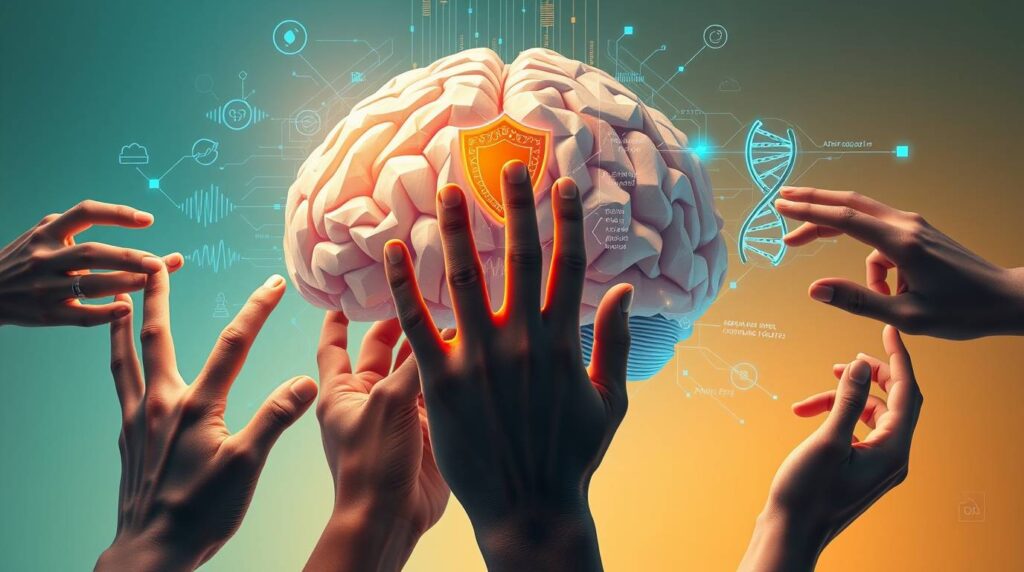Sarah’s manic episodes used to arrive like hurricanes—devastating and unpredictable. Between therapy sessions, her psychiatrist could only reconstruct the wreckage. Then, an AI-powered app started analyzing her speech patterns during nightly phone calls. When it detected the subtle acceleration in her vocal cadence that preceded mania, her care team adjusted her medication preemptively. For the first time in 15 years, Sarah avoided hospitalization. This isn’t science fiction. It’s the new frontier of bipolar disorder management.
The Broken Status Quo
Bipolar disorder affects 60 million people globally, yet diagnostic delays average 5-10 years. Traditional care relies on:
- Retrospective self-reporting (often inaccurate during episodes)
- Infrequent clinical snapshots
- Trial-and-error medication approaches
- 40% misdiagnosis rates between bipolar depression and unipolar depression
Table: The Cost of Delayed Intervention
| Metric | Traditional Care | AI-Enhanced Care |
|---|---|---|
| Diagnosis Delay | 5-10 years | Months |
| Episode Prediction | Limited foresight | 82-85% accuracy |
| Treatment Personalization | One-size-fits-all | Genetically-informed plans |
| Monitoring Frequency | Quarterly visits | Continuous real-time tracking |
How AI is Rewriting the Playbook
1. Predictive Power Beyond Human Perception
AI algorithms digest thousands of data points invisible to humans:
- Vocal biomarkers: Analyzing speech rhythm, pitch, and semantic patterns to flag impending episodes. The PRIORI app detects mood shifts through 30-second voice samples with 76% accuracy
- Digital footprints: Social media linguistic analysis reveals thought disorganization weeks before clinical mania emerges
- Wearable data: Sleep fragmentation + accelerated step patterns = 82% prediction accuracy for hypomania
2. Precision Treatment Revolution
Lithium remains a gold standard but has a razor-thin therapeutic window. AI changes the game by:
- Analyzing genetic markers to predict medication response (avoiding 6+ month medication trials)
- Dynamically adjusting dosages based on real-time physiological data
- Matching patients with clinical trials using AI-driven phenotyping
3. 24/7 AI Guardians
Therapy gaps vanish with:
- CBT chatbots: Delivering cognitive restructuring exercises during depressive troughs when motivation falters
- Mood-aware apps: Juli’s AI platform reduced hypomanic episodes in 55.5% of users in just 8 weeks by identifying behavioral triggers
- Emergency protocols: Alerting clinicians when vocal analysis indicates suicidal ideation
4. Revolutionizing Research
Clinical trials are shedding outdated methods:
- AI video analysis detects micro-expressions signaling treatment response
- Voice biomarkers replace subjective mood scales
- Real-world data captures symptom fluctuations between visits
Navigating the Ethical Minefield
These advances demand rigorous safeguards:
Privacy Paradox
Continuous monitoring risks exploitation. Solutions include:
- Federated learning: Training algorithms on decentralized data
- Blockchain encryption: Securing mood journals and voice recordings
Bias in the Machine
Algorithms trained on homogeneous datasets fail marginalized groups. The fix?
- Community co-design: Involving diverse bipolar patients in development
- Algorithmic audits: Regular bias testing using synthetic datasets
Table: Ethical Guardrails for AI Implementation
| Risk | Solution | Real-World Example |
|---|---|---|
| Data Vulnerability | Edge computing (data processed locally) | Apple Watch mood apps |
| Diagnostic Over-reliance | Clinician veto power | FDA-cleared AI as “second opinion” |
| Therapeutic Disconnection | Human-in-the-loop protocols | Woebot + therapist handoffs |
The Horizon: Where AI is Headed
Emerging breakthroughs will further personalize care:
- Multimodal integration: Combining brain imaging genetics with real-world behavior data
- Digital twins: Simulating medication impacts on virtual patient replicas before prescription
- Emotion decoding: Affective computing that interprets facial micro-expressions via smartphone cameras
A Call to Balanced Innovation
AI won’t replace psychiatrists. But psychiatrists using AI will replace those who don’t. The future belongs to hybrid care models where:
- Algorithms handle pattern detection
- Clinicians focus on therapeutic alliance
- Patients gain agency through data
As Sarah told me: “My AI tool doesn’t treat me—it helps my therapist see me between visits.” That’s the revolution in a sentence: not artificial intelligence, but augmented humanity.
Your Turn: Have you used AI mental health tools? Share your experiences below—let’s build the future together.
Sources
The Role of Artificial Intelligence in Managing Bipolar Disorder
AI as a Decision Support Tool for Bipolar Depression Treatment
Revolutionizing Bipolar Disorder Trials with AI
Machine Learning Diagnosis Accuracy for Bipolar Disorder
AI Tool Detects Bipolar Disorder at Earlier Stages
👉 For more Artificial Intelligence Tools → Click here!




